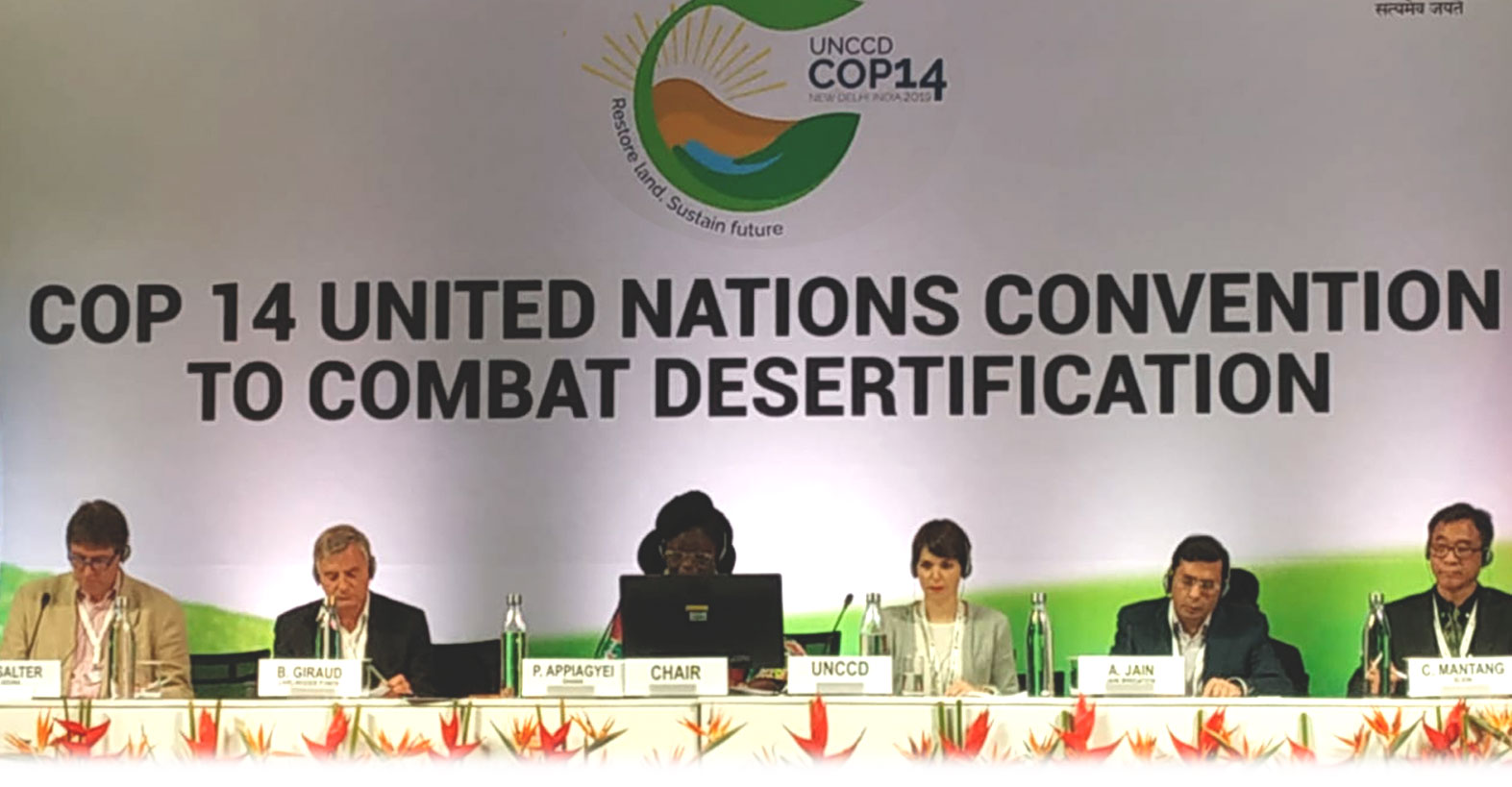Welcome to Jain Irrigation Systems Ltd.

Blog at Jains - Jain Irrigation combating Desertification & Land Degradation which are the biggest threat to agricultural productivity in India
Desertification and land degradation are today the biggest threat to agricultural productivity in India, a nation that hosts the Conference of the Parties to the UN Convention to Combat Desertification (COP-14).
According to reports from the Space Research Organization of India, about one third of the total surface area of the South Asian country (29.32 percent), about 96.40 million hectares, suffered degradation during the 2011-2013 period.
India pledged to achieve neutrality of land degradation by 2030, in a commitment that includes the complete restoration of 21 million hectares of degraded land by that date.
Of a total of 140.13 million hectares planted in India, the net irrigated area is only 68.38 million hectares.
However, Indian researchers develop various irrigation technologies in various crops in places of difficult bioclimatic conditions where high productivity is achieved.
Among these practices, the Jain Irrigation company, one of the best in the world in dealing with environmental problems, is based in Jalgaon, a town in the Indian state of Maharashtra, and with a presence at the Technology Fair for Sustainable Land Management, It works as part of COP-14.
The entity develops a comprehensive model that seeks to improve the quality of life of farmers through the applied use of science, in regions of the country that face very high temperatures with a very dry climate and with a small amount of water.
Jain’s technologies, such as drip irrigation, integrated irrigation, intelligent irrigation, subsurface drip irrigation, among others, are very promising to achieve this goal in combating desertification that India has.
Crops developed with high efficiency and with very innovative technologies by this entity increase production in crops such as onions, citrus fruits, bananas and coffee.
World leader in drip irrigation, Jain produces bananas with high yields in an almost desert climate, with temperatures that are 50 degrees Celsius.
The company also stands out in the processing of food, spices and fruits, plant biotechnology, production of plastic pipes and elements for irrigation systems, solar water pumps, solar panels and photovoltaic energy production.


